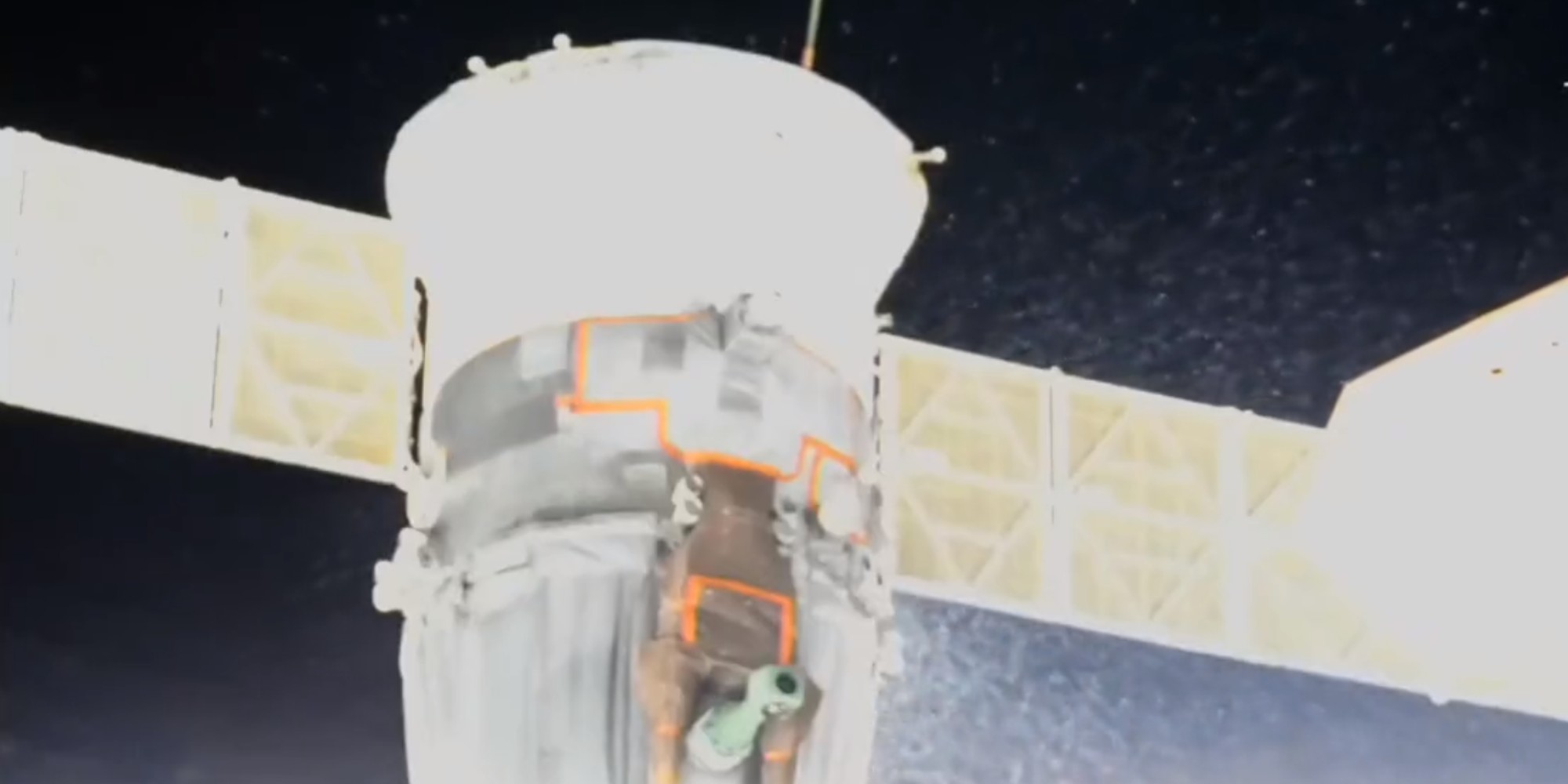Europe 1 with AFP 4:16 p.m., December 16, 2022
Two days after the discovery of a leak on board the space station, the Russian space agency Roscosmos recognized on Friday a "slight" rise in temperature on board a spacecraft docked to the ISS.
According to the agency, this anomaly could be due to a micrometeorite.
The Russian space agency Roscosmos on Friday acknowledged a "slight" rise in temperature aboard a spacecraft docked with the International Space Station (ISS), according to it without danger, two days after a leak potentially due to a micrometeorite impact .
Problem with Soyuz MS-22 on the ISS right now!
pic.twitter.com/V4Ymvnn2D1
— Chris Bergin - NSF (@NASASpaceflight) December 15, 2022
"Slight change in temperature"
According to Roscosmos, specialists from the flight control center and cosmonauts on board the station "carried out a number of tests of the systems of the manned spacecraft Soyuz MS-22, including measuring the temperature in the living space of the vessel".
The temperature on this Russian spacecraft docked to the ISS is +30°C, Roscosmos said on Telegram.
“It is a slight change in temperature,” continued the Russian space agency, which says that this situation “is not critical for the operation of the equipment and the comfort of the station crew”.
It "does not constitute a threat to the life and health of cosmonauts", she further specified.
"The required temperature regime in the habitable space of the Soyuz MS-22 spacecraft is maintained by means of the Russian segment of the ISS", also supported Roscosmos.
A leak caused by a micrometeorite?
The Soyuz MS-22 leak, which occurred on Wednesday when Russians Sergei Prokopiev and Dmitry Petelin were preparing for a spacewalk, may have been caused by a micrometeorite impact, according to Roscosmos.
On images broadcast by the American agency NASA, we could clearly see a jet of white particles escaping abundantly into space – a priori coolant.
This incident raises concerns about the return flight to Earth of the two Russian cosmonauts and their American colleague Frank Rubio, scheduled for March 2023 aboard the Soyuz.
Four other people are currently on board the ISS: Russian Anna Kikina, Americans Nicole Mann and Josh Cassada, and Japanese Koichi Wakata.
The ISS is one of the few fields of cooperation still in progress between Moscow and Washington since the start of the Russian offensive in Ukraine, launched on February 24, and the Western sanctions that followed.

